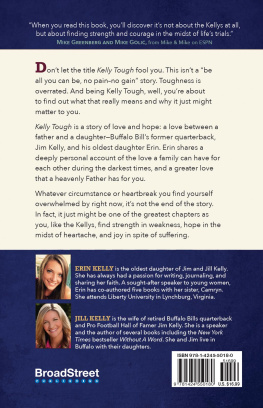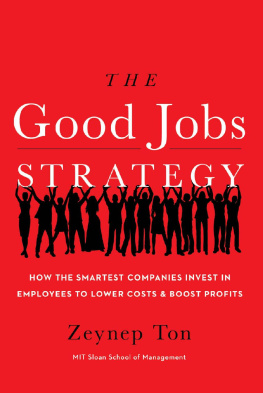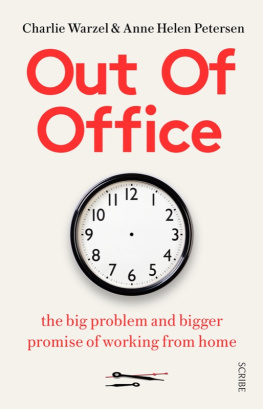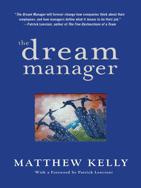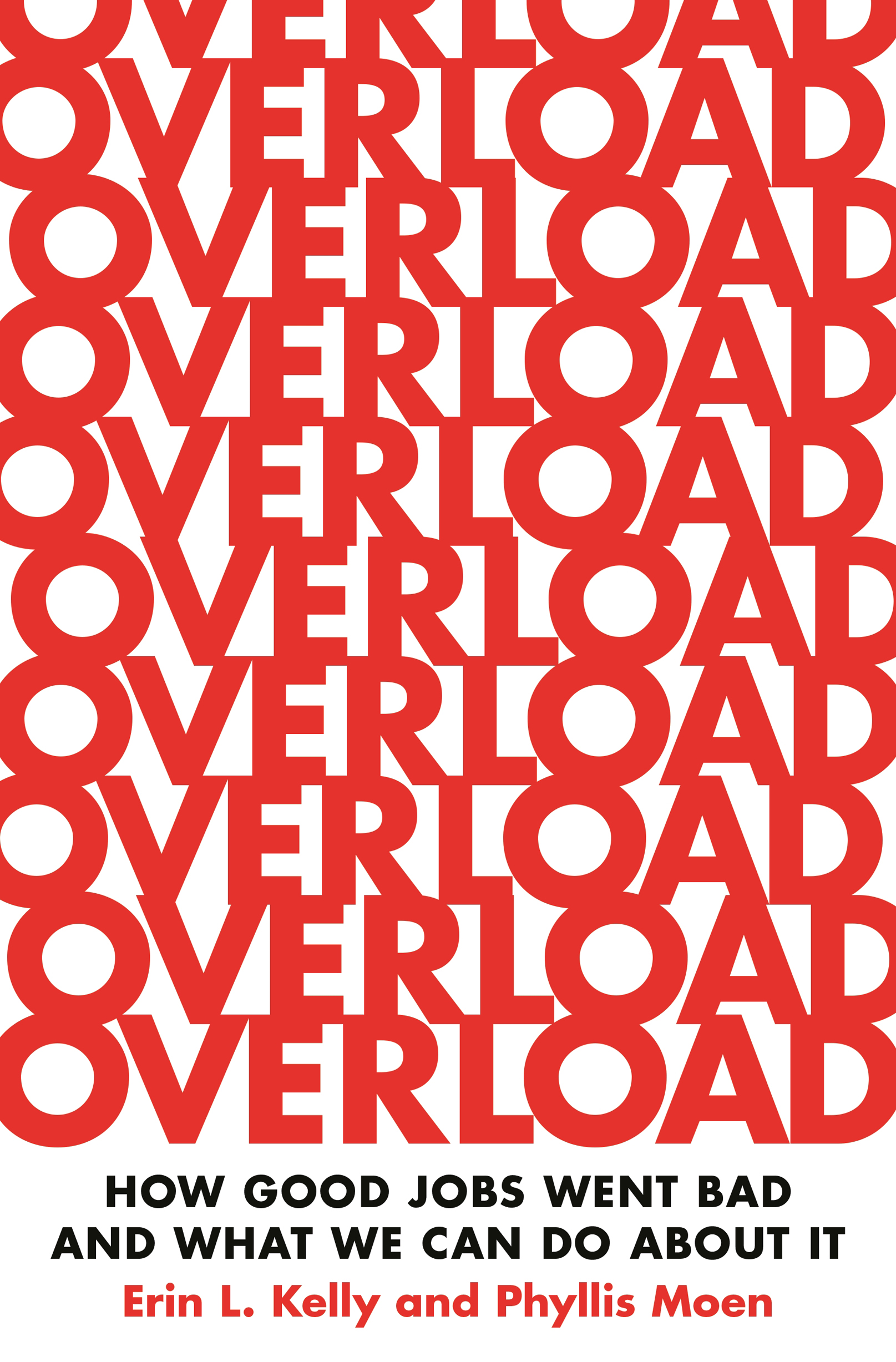OVERLOAD
OVERLOAD

HOW GOOD JOBS WENT BAD AND WHAT WE CAN DO ABOUT IT
Erin L. Kelly and Phyllis Moen
Princeton University Press
Princeton and Oxford
Copyright 2020 by Princeton University Press
Requests for permission to reproduce material from this work should be sent to permissions@press.princeton.edu
Published by Princeton University Press
41 William Street, Princeton, New Jersey 08540
6 Oxford Street, Woodstock, Oxfordshire OX20 1TR
press.princeton.edu
All Rights Reserved
Library of Congress Cataloging-in-Publication Data
Names: Kelly, Erin L. (Erin Lee), 1970 author. | Moen, Phyllis, author.
Title: Overload : how good jobs went bad and what we can do about it / Erin L. Kelly and Phyllis Moen.
Description: 1st. | Princeton : Princeton University Press, [2020] | Includes bibliographical references and index.
Identifiers: LCCN 2019027049 | ISBN 9780691179179 (hardback) | ISBN 9780691200033 (ebook)
Subjects: LCSH: Quality of work lifeUnited StatesCase studies. | EmployeesWorkloadUnited StatesCase studies. | Work-life balanceUnited StatesCase studies. | Organizational changeUnited StatesCase studies.
Classification: LCC HD6957.U5 K34 2020 | DDC 331.20973dc23
LC record available at https://lccn.loc.gov/2019027049
Version 1.0
British Library Cataloging-in-Publication Data is available
Editorial: Meagan Levinson and Jacqueline Delaney
Production Editorial: Kathleen Cioffi
Text Design: Leslie Flis
Jacket Design: Karl Spurzem
Production: Erin Suydam
Publicity: James Schneider and Kathryn Stevens
For Graham, Noah, James, and William
CONTENTS
OVERLOAD
Chapter 1
OLD RULES, NEW REALITIES
The way we work is not sustainable. Sherwin knows this well. He has twenty years of experience as a skilled information technology (IT) professional and is one of the many professionals and managers we interviewed in a Fortune 500 company we call TOMO. Sherwin has a hybrid role where he designs new software solutions to address business problems but also participates directly in developing that new software; hes both a big picture thinker and attuned to the details of writing solid computer code. On the personal side, Sherwin is a divorced dad with two daughters who live mainly with him. He is also the point person for his elderly mother, who is deciding whether it is time to move into a nursing home.
Sherwins family caregiving feels manageable; it is his workload on the job that is overwhelming. Sherwin estimates he works about 70 hours per week. He starts work with calls at 5 a.m., pauses to get his kids ready and off to school, works a full day, prepares dinner and supervises their homework, and then routinely works, at home, until midnight. The long hours and intense pace are perhaps not surprising given the managers he reports to. Sherwins manager, Tanay, describes himself as a super workaholic and says his own boss (who sits two levels above Sherwin on the organizational chart) pushes teams so hard that he is trying to get blood from a rock.
Sherwin is dedicated to his job and often excited about it. He enjoys the technical challenges of his work and appreciates the tremendously talented people in this group Wow, these guys are smart! The feeling is mutual: Tanay conveys his respect for Sherwins intelligence and skills when we interview him separately. But despite appreciating much about his job, Sherwin knows the way he works is toxic. He recognizes that never being able to get [all] the work done[takes] a tremendous toll on me health-wise. His work patterns make it harder for him to take good care of himself. Youre staying up late, youre eating, and the last thing in my mind was to get up and work out. Too tired. In fact, Sherwin recently had a heart attack, luckily a fairly minor one. He tells us:
I didnt even realize it, just went into the doctor because I was not feeling well and they ran an EKG and they did some tests and said You had a heart attack yesterday.
Sherwin was out of work for about four weeks to recover from this health crisis, but it has had a lasting impact. As he says, Im looking at things a lot differently in my life, and he hopes to work differently to take better care of himself.
The way Sherwin works and lives exemplifies the overloadthe feeling of having too much to do in too little timethat so many professionals and managers confront today. These employees are privileged in terms of their pay, benefits, and the ability to work in clean and comfortable offices. They are generally treated with respect, with their contributions and ideas recognized. These would seem to be good jobs in many ways. University of North Carolina sociologist Arne Kalleberg suggests we assess job quality by considering earnings, benefits, job security, and opportunities for advancement as well as how much autonomy or control employees have, how meaningful and interesting the tasks are, and how hours and schedules fit with the rest of life.
But these professionals and managers find that what had been good jobs have morphed into something more intense and less secure. New communication technologies foster an always-on, always-working culture. Managers and coworkers know they can contact employees anytime, anywhere, and they often do reach out before and after official workdays. Moreover, globalization, automation, and artificial intelligence make it clear to even the most educated, experienced, and skilled workers in a variety of occupations and industries that their jobs are changing radically, and may even disappear. Earnings and benefits are still relatively generous, but there is an increasing price to pay. Good jobs, previously characterized by relative autonomy and security, have become bad, with rising workloads, a sped-up pace, and escalating expectations that seem impossible to meet.
Is this the future of work, shaped by warp-speed connectivity, ratcheting demands, and eroding security? These ways of working will either break organizations or break people. Outdated policies and expectations collide with the intense realities of the digital revolution and the global production of knowledge work (as well as manufacturing goods) to exacerbate burnout, stress, and poor health. Most businesses continue to demand 9 to 5 (or 8 to 6) desk time in addition to early morning calls to offshore colleagues, last-minute but all-too-common work requests at 10 p.m., and ubiquitous emails, texts, and instant messaging.
Alongside changes tied to new technologies and global competition, US companies are routinely merging, reorganizing, downsizing, even disappearing. This leaves all employeeseven skilled professionals and middle managersunsure whether they will have their jobs next year or even next week. Those who survive layoffs experience even more overload as they attempt to cover the work of their downsized coworkers. The firm resolves to do more with less, and employees try frantically to make that happen.
Our interviews and surveys in TOMOs IT division demonstrate that overload harms workers. That is probably not a surprise to readers, and it is very clear to the professionals and managers we interviewed. Kunwar, a manager who supervises almost thirty employees and is also a wife and mother, explains that her 10 p.m. meetings mean her entire evening is actually ruined because she is on edge and busy preparing for the call. Similarly, taking a status call meeting at 5:30 or 6:30 in the morning on Saturday or Sunday, as she does regularly, affects the whole weekend day.



